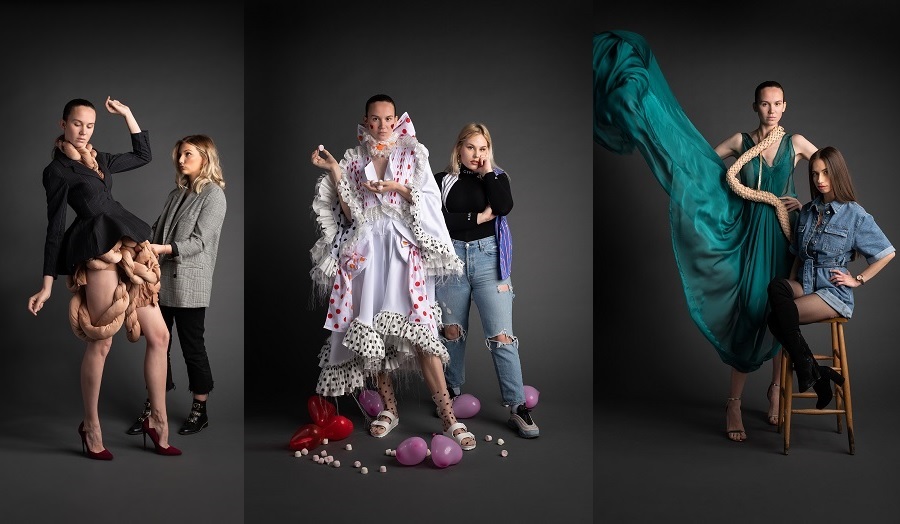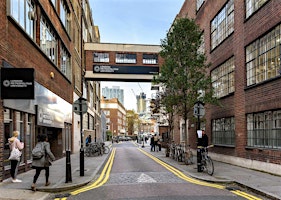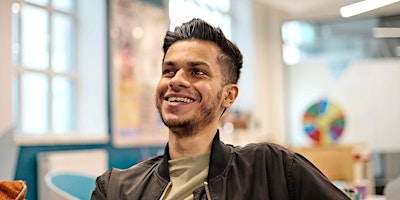Apply for this course
Please select when you would like to start:
If you're a UK applicant wanting to study full-time starting in September, you must apply via UCAS unless otherwise specified. If you're an international applicant wanting to study full-time, you can choose to apply via UCAS or directly to the University.
If you're applying for part-time study, you should apply directly to the University. If you require a Student visa, please be aware that you will not be able to study as a part-time student at undergraduate level.
Why study this course?
BA Fashion at London Met delivers a first class creative fashion degree education. Taught by practitioners who are experts in the field and with strong connections to the industry. Students have the opportunity to undertake live indsutry projects and placements. The core syllabus explores the dynamic field of fashion through visual research, design media, pattern cutting, draping and sewing.
Passionatee about keeping traditional skills alive and developing a more sustainable world we deliver "artisan workshops" these focuses classes in specialisms such as corsetry, bespoke tailoring and leather design are delivered by outside industry professionals all bringing with them valuable knowledge and insight.
Students have the freedom to develop and explore their individual creativity, honing practical skills and knowledge to make their mark.
What makes our course stand alone is the unlike rival fashion courses we intentionally keep our class sizes small and work with each inidividual students on a daily basis, encouraging them to be true to themselves and discovering their own design language and talent whether that be street wear, haute couture or conceptually led.
Learn from industry professionals
Tutored by experts in the field, you’ll work within real life fashion studios and network with leading names in the business
Build your future career network
We invite major brands to share their knowledge with you, and these invaluable networking opportunities will help you secure internship roles and future employment with industry leaders
Get involved in projects, competitions and events
There are regular opportunities to collaborate with fellow students, as well as ongoing live projects, international industry competitions and the chance to participate in London and Paris fashion week
Course modules
The modules listed below are for the academic year 2024/25 and represent the course modules at this time. Modules and module details (including, but not limited to, location and time) are subject to change over time.
Year* 1 modules
Year 2 modules
Year 3 modules
3D Design and Development 1
This module currently runs:all year (September start) - Monday morning
all year (September start) - Thursday afternoon
all year (September start) - Thursday morning
all year (September start) - Monday afternoon
(core, 30 credits)
Successful 3D design outcomes are reliant on sound 3D design principles. These design principles inform the design process and create opportunities for you to apply your creativity to the conception, development and eventual realisation of effective 3D design solutions. It is these research and development strategies that ensure that your designs have the effects intended and are safe and beneficial to their users.
This module will introduce you to a range of contemporary and traditional discipline-related design approaches and processes, some of which will be tested in design exercises and some of which will be fully realised in studio work and projects. Processes experienced will involve research, analysis, experiment and discovery along with documentation of the process and your findings.
Design concepts will be tested through the application of workshop and studio methods: materials, processes and technologies will be discipline-specific, developing creative outcomes relevant to the possibilities and constraints of the context intended. Through the application of development processes that are both careful and experimental, you will be encouraged to develop a critically informed and personal approach to the process of design.
Read full details3D Workshop Practice
This module currently runs:all year (September start) - Monday morning
all year (September start) - Thursday afternoon
all year (September start) - Thursday morning
all year (September start) - Monday afternoon
(core, 30 credits)
Good design and high-quality artefacts are informed by knowledge of both the potential and the limitations of relevant technologies and techniques, materials and processes. The focus of this module is on the development of understanding and ability in a range of key practical skills and an understanding of material and process through experience, experimentation and direct observation. The module will introduce you to some of the key methods and principles of achieving high-quality outcomes, whether crafted, manufactured or constructed. It will develop capacity for informed decision-making about material experimentation and process investigation through the exploration of why particular choices of material, technique, process and technology are made in relation to factors such as aesthetics, function, scale and ethical considerations. The module is taught within disciplinary specific studios, includes a range of relevant workshop inductions and will aid the realisation of designs and projects developed in other modules.
Read full detailsCritical & Contextual Studies 1 (3D)
This module currently runs:all year (September start) - Tuesday morning
(core, 30 credits)
The module aims to orient and critically engage you in the history and theory of your discipline, to examine its scope, conventions, and broader social and material context in culture and practice. The overarching purpose of this is to enable a greater ability to think through and develop your studio practice, enriching it with knowledge and ideas gained from study of the contexts in which it is framed. You will be encouraged to explore issues relevant to your own background and identity.
The module will help you to reflect on what you see and experience, and to find connections between different ideas that have shaped your discipline. In particular, the module investigates how ideas about practice in your field might be framed, for example in relation to history, the economy, cultures, society and the environment, through both theory and practice. You will be encouraged to question received ideas and to broaden your thinking and understanding of the global and previously marginalised contexts and histories of your discipline. The current and historic practice, impacts and implications of your discipline in relation to matters of sustainability, equity and accessibility will also be a focus of your studies.
The module will begin to introduce you to a range of academic skills needed to produce a graduate level study (a dissertation) in your final year. It will help you to develop and define your own interests, and to reflect on and take responsibility for the development of your own learning.
Read full detailsResearch and Visual Communication
This module currently runs:all year (September start) - Monday morning
all year (September start) - Thursday afternoon
all year (September start) - Thursday morning
all year (September start) - Monday afternoon
(core, 30 credits)
This module introduces and develops a range of knowledge, skills and approaches for the research and communication of information and ideas for 3D disciplines and artefacts in visual form. The ability to draw and communicate visually for research, as well as design development, is critical to the success of a designer in any 3D discipline. Subject specialist skills in drawing and communicating ideas are the central component of this module.
You will take part in a range of studio sessions, workshops and lectures that introduce a wide range of traditional and contemporary drawing, visual research and communication media, methods and practices to help you explore, record, select from, analyse and interpret your environment and the world of images, spaces and artefacts for a range of purposes. Discipline-specific professional approaches to the recording, visualisation and presentation of your designs will ensure that you begin to acquire vital employability skills.
Discipline-specific projects will explore the recording and expression of line, colour, form, structure, light, space and perspective, texture, detail and context appropriate to the requirements of the field in a range of media and formats. Through learning these skills, the module will support your development as a designer with an in-depth understanding of research and communication methods that underpin design process and outcome strategies and the communication of your creative practice and identity.
Read full details3D Design Realisation
This module currently runs:all year (September start) - Friday morning
all year (September start) - Tuesday afternoon
all year (September start) - Tuesday morning
all year (September start) - Friday afternoon
(core, 30 credits)
In this module you will realise the physical outcomes of designs developed in 3D Design and Development 2. You will be expected to work to increasingly professional and highly resolved standards of production, keeping records of progress through the projects.
You will be asked to consider carefully the materials and processes that you propose, justifying their selection on the basis of performance, safety, cost, ethical and environmental considerations and aesthetic judgement.
Through in-depth practice-led testing and process, you will consider the social, functional and environmental impacts of your choices, developing a creative and experimental, yet logical and evidence-based method to problem solve, appropriate to the needs of your clients and users.
Read full details3D Design and Development 2
This module currently runs:all year (September start) - Friday morning
all year (September start) - Tuesday afternoon
all year (September start) - Tuesday morning
all year (September start) - Friday afternoon
(core, 30 credits)
This module aims to enable you to develop designs in the context of our complex relationship with the designed world and its inhabitants. Through developing your understanding of human physical, emotional and psychological needs, individual and collective, alongside individual, social and cultural contexts, you will become aware of the importance of designing with a sense of care and responsibility for the users of your designs.
You will be expected to demonstrate that design work and its outcomes are the result of detailed research. The evidence-based selection and application of materials and processes, and careful testing of design proposals, will enhance both the concept and the communication of your designs.
You will undertake a range of studio projects, sometimes in conjunction with external partners, mentored by professional practitioners as appropriate to the project. This exposure to professional ways of working will enable a personal and distinctive approach to design, preparing you for your future career.
Read full detailsCritical & Contextual Studies 2 (3D)
This module currently runs:all year (September start) - Thursday morning
(core, 30 credits)
Critical and Contextual Studies 2 continues to orient and critically engage you in the history and theory of your discipline, its extent and conventions, and its broader social and material context in culture and contemporary practice. It builds on studies undertaken in Level 4 and prepares you as independent thinkers to be capable of selecting an appropriate topic and producing a sustained piece of independent study in the form of a dissertation in Level 6.
The module continues the process of constructing and questioning knowledge about your discipline, its history, contexts, and professional and ethical dimensions. It introduces and rehearses the analytical and discursive skills you need to become critically aware of the authorities, objects and practices in your field and able to express and debate the issues attaching to them. You will consider the roles and responsibilities of professionals in your field and examine the ethical questions relevant to the discipline, becoming conversant with current debates in the subject. You will consider the priorities and points of view of the industry, the client, the designer, the consumer or user, the critic and wider society.
You are encouraged to think critically and creatively and to take responsibility for the development of your own learning. The module recognises that you are an active contributor to the process of learning: what you as a student bring to the construction and evaluation of knowledge matters – and how effectively you construct and evaluate that knowledge depends on how well you understand the field of your discipline as outlined above.
Critical and Contextual Studies for second year students is structured in order to foster confidence, through applying analytical skills to a growing body of knowledge and expressing this through debate, discussion and public presentation. Dialogue and exchange between students and tutors takes place in informal in-class settings and ensures that student experience and cultural and social capital is expressed and valued.
Read full detailsProfessional Practice 1
This module currently runs:all year (September start) - Thursday afternoon
(core, 30 credits)
In this module you will research and discover the professional ways of working in your field. Design is an extremely diverse field and commercial practice takes many forms, it is therefore vital to understand the various routes and opportunities for employment and self-employment that exist, and how to promote yourself effectively.
Key to this is understanding that you are preparing yourself to enter the field of design in the future. Changes to practice, markets, constraints and opportunities happen rapidly and sometimes in ways that are hard to foresee. Consequently it is necessary to have the broadest and most current awareness of the contexts for your future design practice possible. These contexts may be economic, legal, ethical, and regulatory, equally they may arise from social sentiment or simply fashion. Whatever the reason, you need to put yourself in the best position possible to be an adaptable practitioner, able to respond rapidly and effectively to changing circumstances.
You will be asked to survey and research in depth the current and potential future professional structures, career paths, and sector-specific ways for working for your discipline. You will also investigate how commercial practice is changing in response to technological developments, environmental imperatives and social, legal and cultural contexts.
You will start to consider how your interests, talents and ambitions can best be served in your preparation for entry to employment or self-employment and will begin to construct a distinctive professional identity in your portfolio, cv, website or other means of disseminating your creative identity to potential future clients and employers.
The presentation and communication of the outcomes of you research, information gathering, and findings will demonstrate your understanding of industry practice vital for professional success in designing and making. You will deliver presentations in appropriate disciplinary forms gaining confidence in presentation, collaboration and decision-making including team working.
Read full details3D Design and Development 3
This module currently runs:all year (September start) - Friday morning
all year (September start) - Tuesday afternoon
all year (September start) - Tuesday morning
all year (September start) - Friday afternoon
(core, 30 credits)
Through synthesis of the knowledge of processes and design principles that you have gained in the previous years of study, using intellectual, creative and practical skills, you will design and develop self-directed projects, including your ‘major project’.
The projects will be individually set, but will require negotiated and approved project proposals before commencing. You will undertake and record in-depth research, a well-constructed design development process, the exercise of critical thinking skills and the selection of production skills resulting in a significant body of creative outcomes.
Your process will include market and competitor research, idea generation, concept development, material investigation, sampling, modelling or prototyping and visualisations that lead towards the realisation of the project proposed in the ‘Project Resolution’ module.
The module will require you to critique your own work and adopt the professional standards of your disciplines. The module emphasises the growth of a personal focus and creative identity whilst acknowledging commercial and professional ethics, expectations and constraints.
Critical & Contextual Studies 3: Dissertation (3D)
This module currently runs:autumn semester - Wednesday morning
autumn semester - Wednesday afternoon
(core, 30 credits)
Critical and Contextual Studies (CCS) in Level 6 offers you an opportunity to understand and explore the historical, social, cultural and economic factors which influence, and provide a context for, the development of architecture, art and design practice. Building on critical and academic skills gained during two years of previous study, the module encourages you to develop an awareness of issues around which there is some debate, uncertainty or contest. Based on this awareness, you will develop a set of research questions which constitute the topic of your study. This topic can be theoretical, historical, or technical and you may, with guidance, decide to engage with an area of scholarly interest outside the territory of your degree course.
You will develop your topic and respond to your research questions in the form of an extended critical study or Dissertation (6,000–7,000 words). Through this study you demonstrate that you can thoroughly research a topic, use appropriate methods of investigation, and work in a methodical and organised way to develop a coherent argument or line of thought. Teaching and Learning on the module is designed to support you in this process through a combination of tutorials and one to one supervision; as well as a series of formative and summative assessments which prepare you for the final submission.
The final form and presentation of your Dissertation can reflect a broad range of approaches to research and writing. It may include visual materials or other non-written forms of presentation as long they support your enquiry and comprise an integral part of the whole. By prior approval at the start of the module, your research can be part practice-based, and include primary research and fieldwork.
The dissertation may, by prior approval at the start of the module from the Head of Subject, be part practice-based and can include fieldwork and primary research in its methods. Its form and approach can reflect a broad range of design-specific approaches based on discussion and agreement with your supervisor.
By virtue of the sustained, independent nature of the learning and substantial final output, the dissertation is also intended to prepare you for possible postgraduate study.
Read full detailsMajor Project Resolution: Fashion
This module currently runs:all year (September start) - Friday morning
all year (September start) - Tuesday afternoon
all year (September start) - Tuesday morning
all year (September start) - Friday afternoon
(core, 30 credits)
The Major Project module provides the opportunity for you to prepare yourself for employment or independent practice in fashion, or to progress to higher studies. Through the self-determined project, you will synthesise the specialist knowledge and skills that you have gained through the course and effectively communicate these through the professional-standard production of your designs.
You will exercise your abilities in selecting, analysing and applying knowledge, skills and understanding to a fully researched project. Through this process, you will be able properly to understand and communicate your strengths, interests and position in your field, as well as your opportunities for future professional development.
A negotiated and approved proposal will confirm your individual project. Through careful planning and recording of process, you will demonstrate your ability to negotiate the complex and changing nature of problems in professional fashion design, balancing the competing demands of creativity, practicality, commercial reality and ethical principles.
Your outcome will exhibit a professional standard of realisation, contextualisation and presentation, providing the elements for an interview-ready portfolio of practice.
Read full detailsProfessional Practice 2
This module currently runs:spring semester - Friday afternoon
(core, 30 credits)
By the end of this module you will have a detailed plan and materials ready for the launch of your career, whether that be in employment, self-employment or further study.
You will be set tasks to research in detail how designers and practitioners in your sector (your future competitors) build their professional and creative profiles and businesses and achieve success. There will also be a focus on how to identify opportunities such as competitions, exhibitions and notice of commissioned work being available. How to achieve effective and cost-effective promotion of your practice will be demonstrated, using the full range of traditional and newly-available communication channels and strategies as appropriate for your practice.
You will be asked to identify what is distinctive about your practice and approach, so that you can make an offer to the market that is attractive and unique. This will require fully professional and sophisticated visual presentation of your work in formats that are recognised by your professional peers and potential clients or employers.
You will continue to research the various roles and employment opportunities that are available to you, understanding how those roles interact and what the skillset requirements for them are, so that you can evaluate and select from the widest range of career openings.
Your final submission should represent a fully rounded, professional and appealing creative profile ready for presentation to potential employers and clients.
Read full details

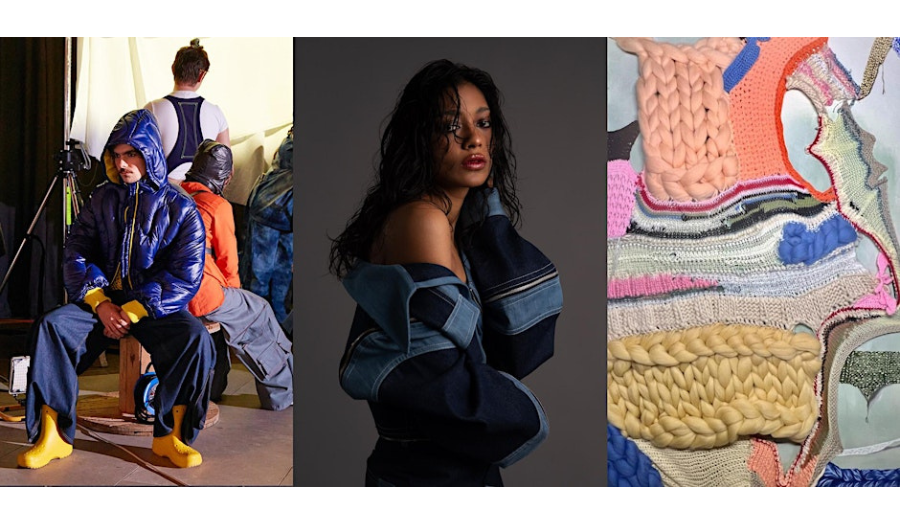
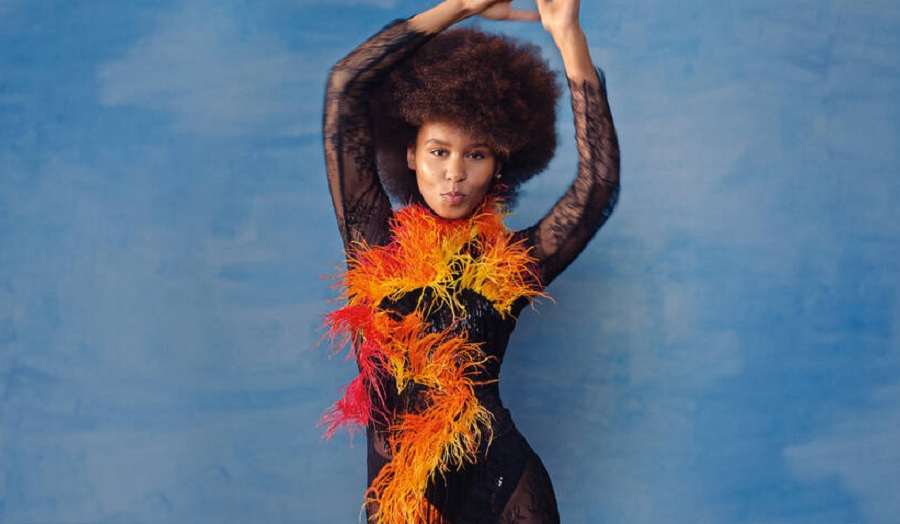
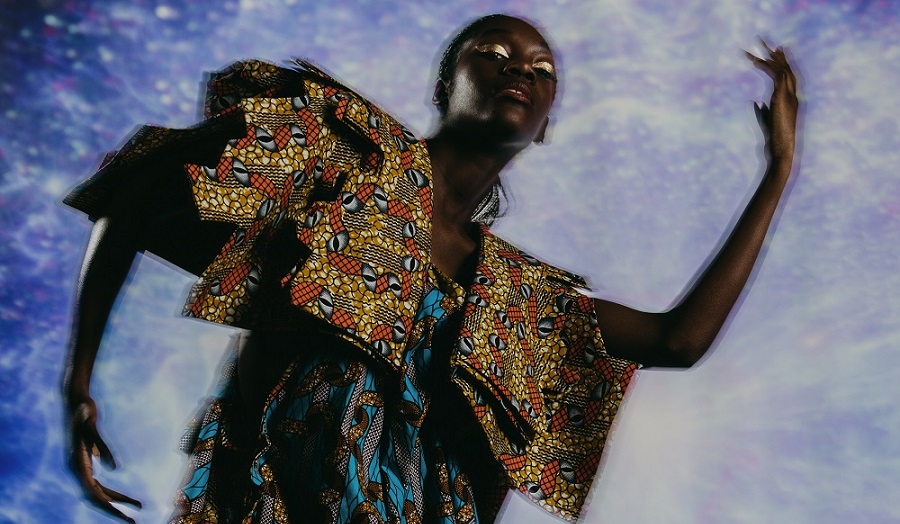
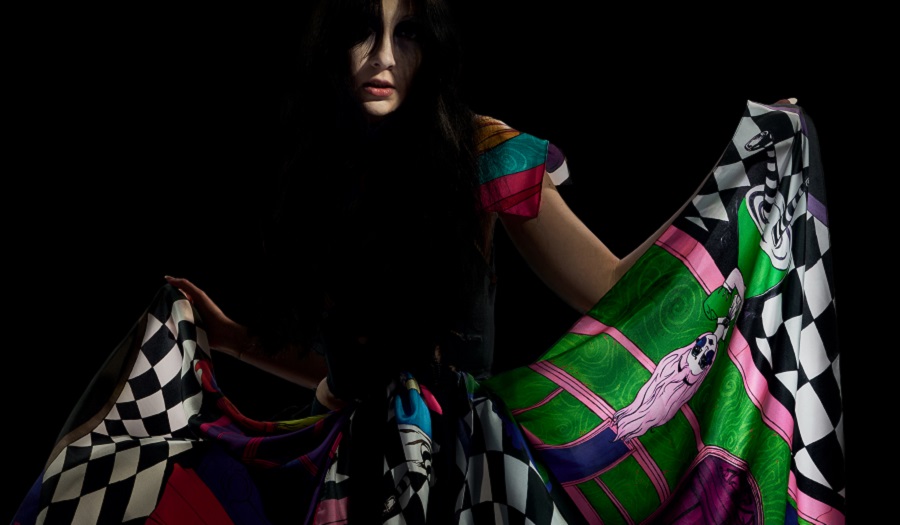
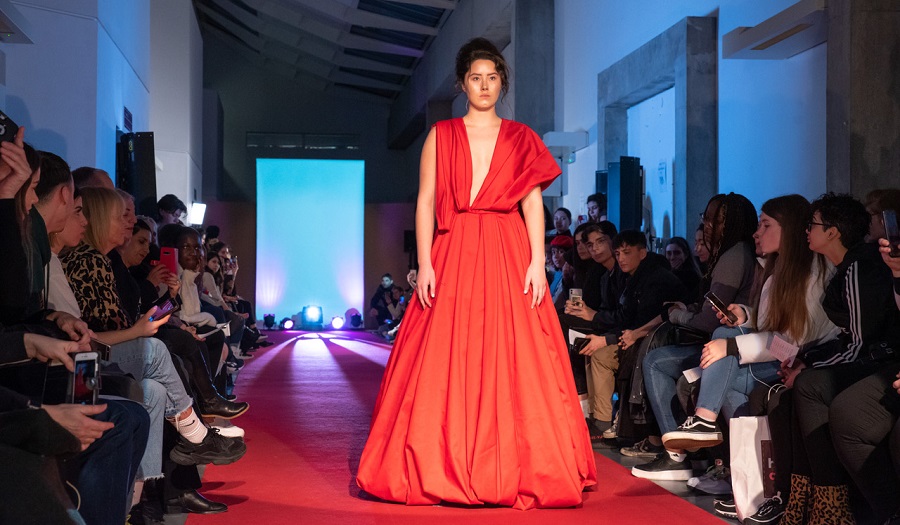
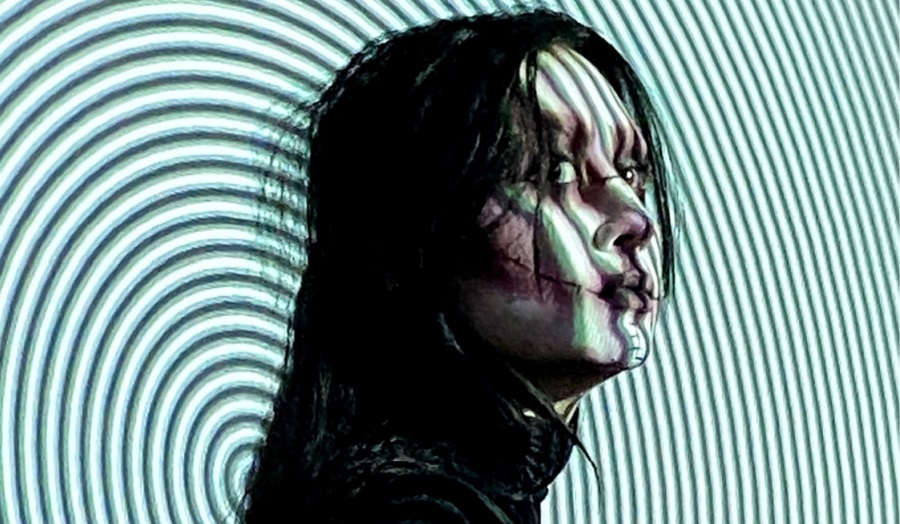
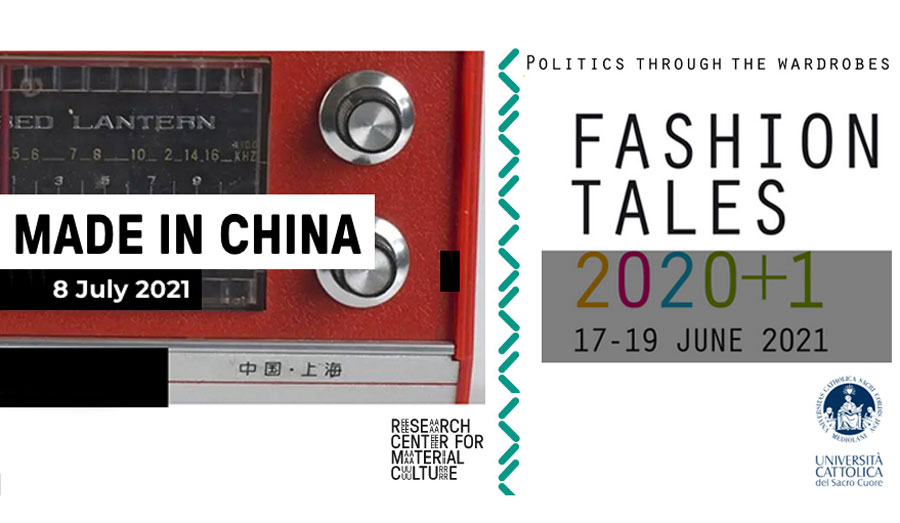
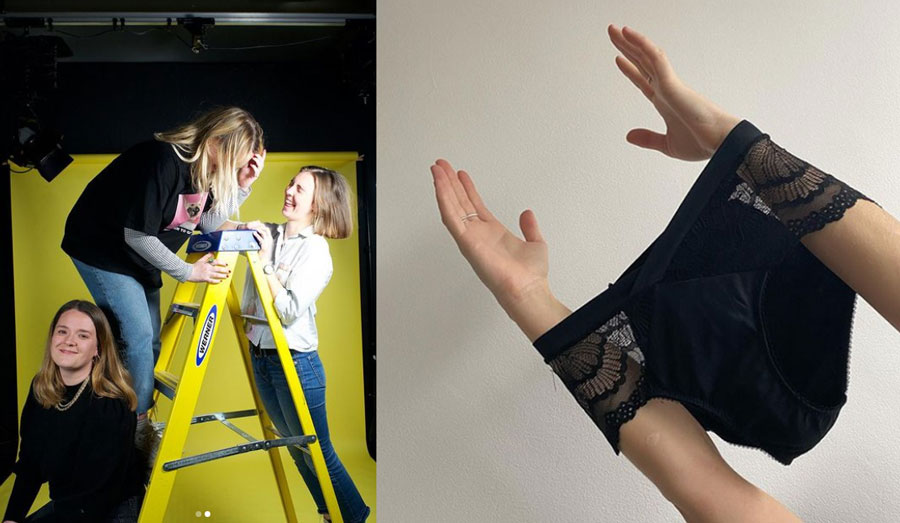

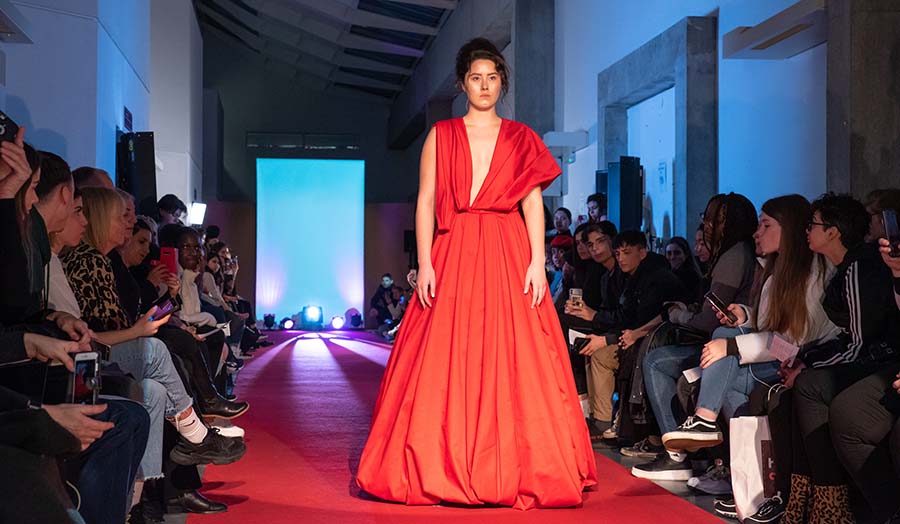

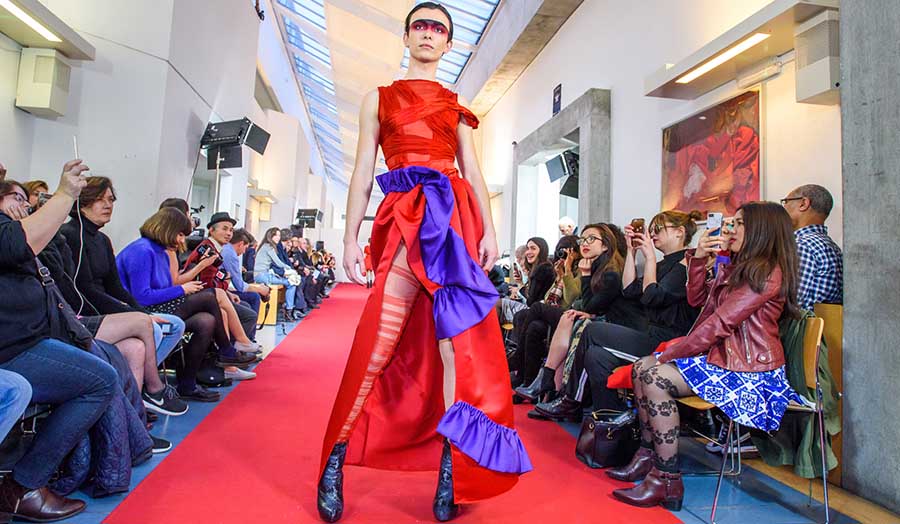
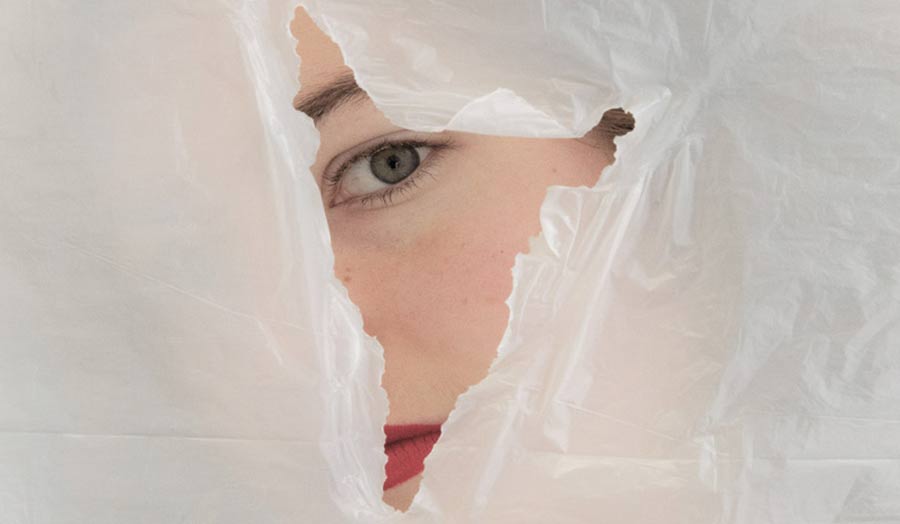
.jpg)
